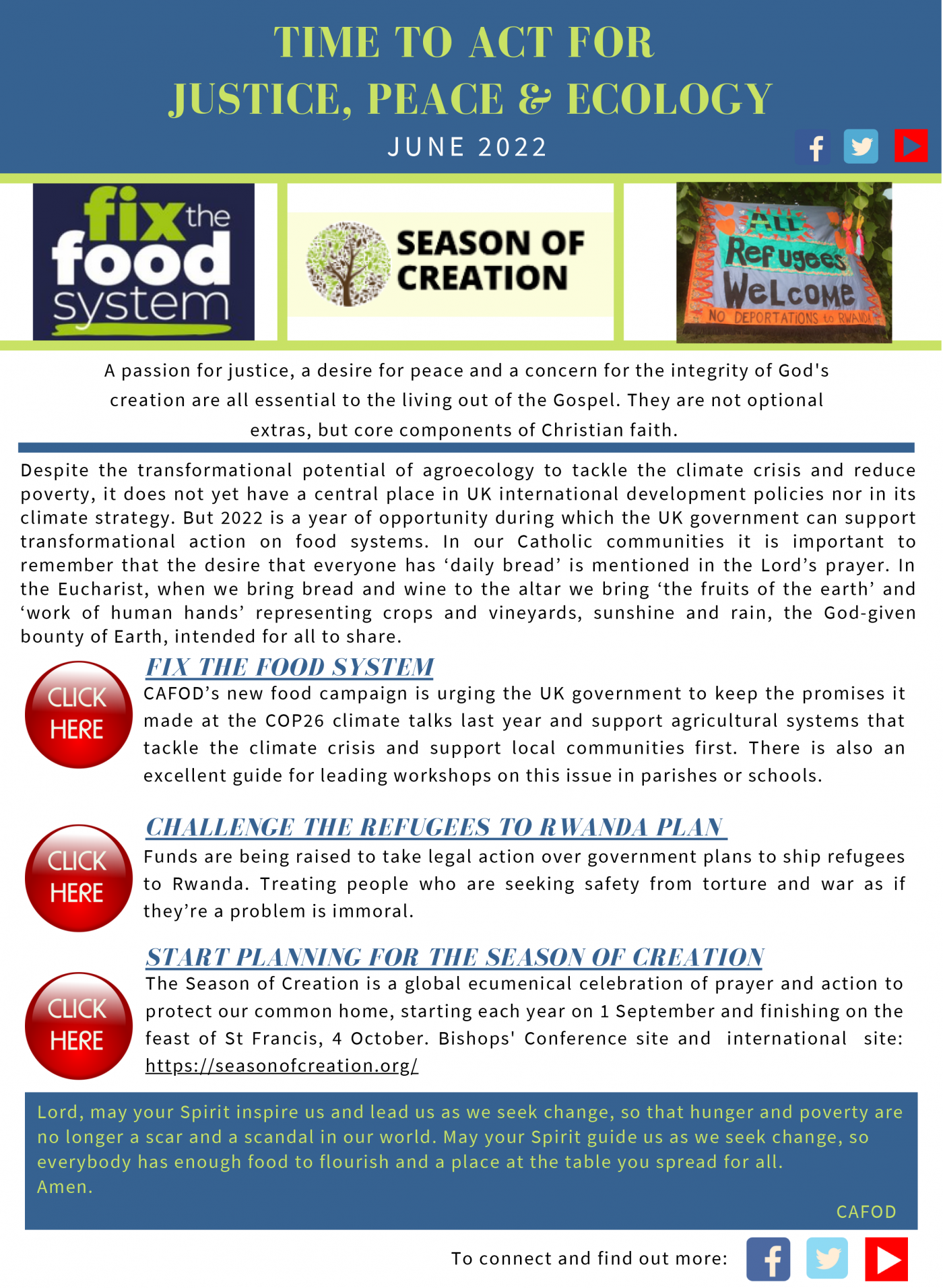We have all noticed our food bills increasing all this year. Across Britain, food banks and community food hubs that helped struggling families, older people and the homeless during the pandemic are now seeing demand soar.
Elsewhere, the rising cost of food is causing desperation. A perfect storm of war, extreme weather and Covid is driving global food prices to levels that will cause social unrest in some parts of the world, according to the UN World Food Programme. We saw protests in May in Pakistan, Sri Lanka and Sahelian Africa. In fact, according to the UN, a staggering 276 million people are at that critical level, including nearly 49 million people in 43 countries that are on the brink of famine.
It is timely then that CAFOD is running a ‘Fix the Food System’ campaign. It suggests that climate change, the Covid pandemic and the rising prices of food and agricultural products – such as fertilisers – as a result of the Ukraine crisis, have together revealed the fragility of our current global food system. Even deeper causes arise from the unequal concentration of power in the hands of a few huge agri-businesses acting in their own interests. Public and private money has flowed to large-scale commercial agriculture dominated by big business. Priority is given to profitable crops for exports primarily geared towards the needs of Western diets, not towards the livelihood or nutritional needs of the local populations from where these crops originate. For example, over 80% of the fruit and 50% of the vegetables that we eat come from other countries.
According to Columban eco-theologian Sean McDonagh, industrial agriculture takes a hidden toll on human health and on the environment. “Very seldom is the transport and greenhouse gas cost of our food properly accounted for” he says. Modern food processing encourages long distance transport of food across countries and even across continents. In Britain, the distance milk is transported has increased 30 times in the past 40 years. Many feel that a radical change is needed in agricultural policy and practice in order to address hunger and poverty, social inequities and environmental sustainability questions. CAFOD suggests that the business-as-usual scenario of industrial farming, input and energy intensiveness, and marginalisation of small-scale farmers, is no longer tenable.
CAFOD is calling to the UK Government to support small-scale farming which goes a long way to reducing poverty as it is two to four times more effective than other sectors in raising incomes among the poorest people. Small farmers are highly efficient too. They produce around 35% of global food production on just 12% of the land. They also usually produce a wider diversity of crops than larger farms. This contributes to a more nutritious diet, but also to ecological diversity which is so important for tackling the climate crisis.
Church agencies around the world are involved in supporting small scale agriculture very successfully. Caritas Bangladesh, for example, is helping develop local rice varieties and the Columban Missionary Society in the Philippines runs several organic farms. In Britain, we should review our food policies and make a commitment to change our lifestyle and food infrastructure in keeping with the carrying capacity of Earth and the protection of its climate.
Despite the transformational potential of agroecology to tackle the climate crisis and reduce poverty, it does not yet have a central place in UK international development policies nor in its climate strategy. But 2022 is a year of opportunity during which the UK government can support transformational action on food systems as it still holds the Climate Talks COP Presidency until the end of the year. Sustainable agriculture is beneficial to poor farmers, but it needs to be supported by the appropriate policy and regulatory frameworks.
Also, something fundamental is that both farmers and consumers need to be educated to value nature’s intrinsic worth as a gift of God, rather than to consider it as simply a resource to be exploited just like any other commodity. We need more focus on local food production, and educational syllabuses to include teachings on values that promote a simple lifestyle and respect for the natural world. In my own home, this will mean less junk food, growing vegetables and fruit trees, alongside campaigning for food security for the world’s poor.
In our Catholic communities it is important to remember that the desire that everyone has ‘daily bread’ is mentioned in the Lord’s prayer. In the Eucharist, when we bring bread and wine to the altar we bring ‘the fruits of the earth’ and ‘work of human hands’ representing crops and vineyards, sunshine and rain, the God-given bounty of Earth, intended for all to share.


